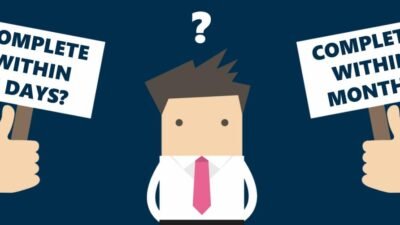Buy my home, a phrase that resonates deeply in today’s real estate landscape, captures the essence of homeownership and the desire for change. It’s not just about selling a property; it’s about embracing new opportunities and finding the right buyer who values your home as much as you do.
This journey involves understanding the nuances of the market, presenting your property in the best light, and navigating the complexities of negotiations. Whether you’re a first-time seller or a seasoned homeowner, knowing the ins and outs can make the process smooth and rewarding.
In today’s rapidly evolving world, the importance of digital literacy cannot be overstated. As technology continues to advance, the ability to navigate the digital landscape has become a fundamental skill set that is essential for success in both personal and professional realms. This article delves into the significance of digital literacy, its key components, and how individuals can enhance their skills in this area.Digital literacy can be broadly defined as the ability to locate, evaluate, and use information effectively from various digital platforms.
This includes not only the capability to operate devices and software but also the critical thinking skills needed to assess the credibility of sources, understand online etiquette, and navigate the complexities of digital communication. In a world where misinformation can spread rapidly, being digitally literate is crucial for making informed decisions.One of the primary components of digital literacy is information literacy.
This involves the skills necessary to find and assess the quality of information available online. With countless sources available at our fingertips, it is essential to distinguish between credible sources and those that may present biased or inaccurate information. This can be achieved by checking the author’s credentials, looking for citations from reputable organizations, and cross-referencing facts with other trusted resources.Another critical aspect of digital literacy is the ability to communicate effectively in digital environments.
Online communication is vastly different from face-to-face interaction, and understanding the nuances—such as tone, context, and clarity—is vital. Whether it’s through email, social media, or collaborative platforms, knowing how to convey messages appropriately can significantly impact professional relationships and personal interactions.Furthermore, digital literacy encompasses the understanding of online privacy and security. In an age where data breaches and cyber threats are increasingly common, being aware of how to protect personal information is essential.
This includes understanding the implications of sharing information online, recognizing phishing attempts, and using strong passwords. Individuals must stay informed about the latest security practices to safeguard their digital lives.In addition to these components, digital literacy also involves the ability to create and share content. This can range from writing blogs and articles to creating videos or graphics. Developing these skills not only enhances personal expression but is also increasingly important in a professional context.
Many employers look for candidates who can effectively communicate ideas and contribute to digital projects, making content creation an invaluable skill.To enhance digital literacy, individuals can take several steps. Firstly, engaging in online courses or workshops focused on digital skills can provide a structured learning environment. Many organizations and educational institutions offer free resources that cover various aspects of digital literacy, from basic computer skills to advanced content creation techniques.Additionally, practicing critical thinking skills can improve one’s ability to evaluate online information.
This can be achieved by regularly reading articles from different perspectives, participating in discussions about digital media, and challenging oneself to analyze the motives behind certain content. By actively engaging with information, individuals can sharpen their ability to discern the quality of sources.Moreover, staying updated with the latest technological trends is vital. Technology evolves at an extraordinary pace, and what is relevant today may become obsolete tomorrow.
Subscribing to technology blogs, podcasts, or newsletters can provide insights into emerging tools and platforms, allowing individuals to adapt and refine their skills continuously.Lastly, fostering a community of learners can greatly enhance digital literacy. Joining groups or forums that focus on digital skills can create opportunities for collaboration and knowledge sharing. Whether it’s through online platforms or local meetups, connecting with others can provide support and motivation, making the learning process more enjoyable and effective.In conclusion, digital literacy is an essential skill set in today’s technology-driven world.
It encompasses a range of competencies, including information literacy, effective communication, online privacy and security, and content creation. By actively seeking to improve these skills, individuals can navigate the digital landscape with confidence and proficiency. The journey towards becoming digitally literate may seem daunting, but with the right resources and a commitment to continuous learning, anyone can enhance their digital capabilities and thrive in a connected world.
FAQ Compilation
What should I do to prepare my home for sale?
Start by decluttering, making necessary repairs, and staging your home to appeal to potential buyers.
How do I determine the right price for my home?
Research comparable properties in your area, consider market trends, and possibly consult a real estate agent for an accurate appraisal.
How long does it typically take to sell a home?
While it varies by market conditions, homes can sell anywhere from a few weeks to several months based on pricing and demand.
Should I hire a real estate agent or sell my home myself?
Hiring an agent can streamline the process and provide expert advice, but selling yourself can save on commission fees if you’re knowledgeable and prepared.
What are common mistakes to avoid when selling my home?
Avoid overpricing, neglecting repairs, and failing to market your home effectively, as these can hinder your sale.










